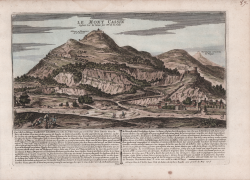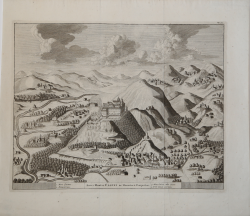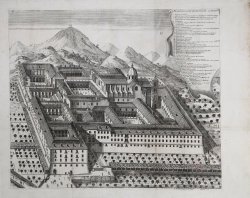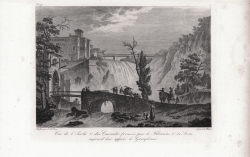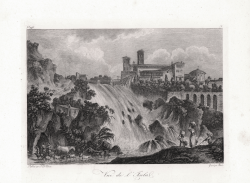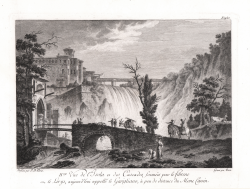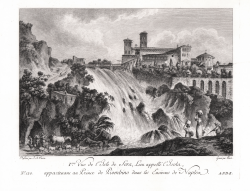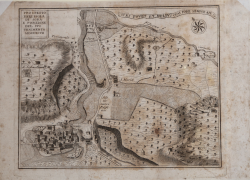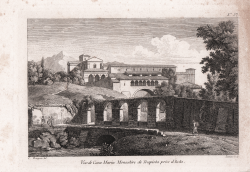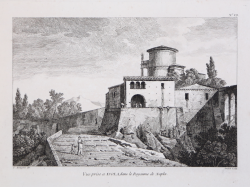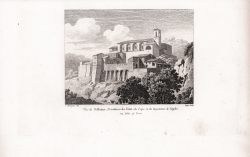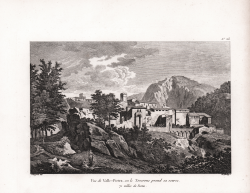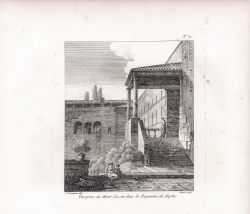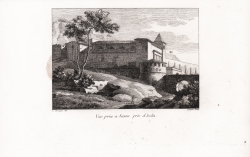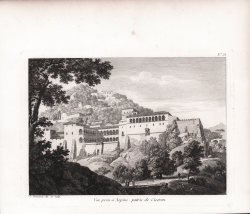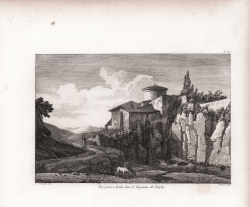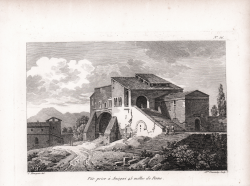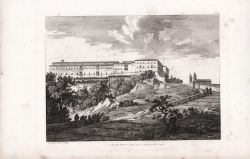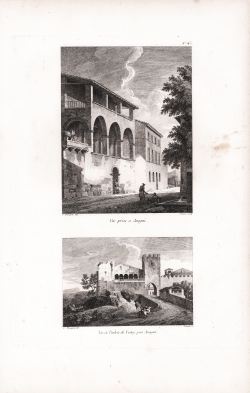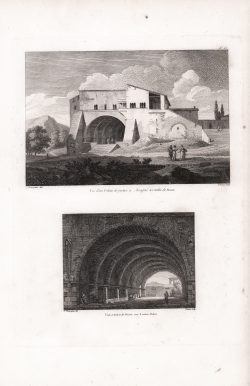Sacri Montis Casini ac Monasterii Prospectus
Pieter VANDER AA
Code:
S29288
Measures:
400 x 320 mm
Year:
1705 ca.
Printed:
Leyda
Prospectus Sacri Archicoenobii Casinatis
Erasmo GATTOLA
Code:
S44190
Measures:
475 x 400 mm
Year:
1733
Printed:
Venice
Vue de l’Isola & des Cascades formées par le Fibrinus & le Liris…
Richard de SAINT NON
Code:
s1048
Measures:
245 x 190 mm
Year:
1782 ca.
Printed:
Paris
Vue de l’Isola
Richard de SAINT NON
Code:
s1047
Measures:
245 x 190 mm
Year:
1782 ca.
Printed:
Paris
Vue de l'Isola et des Cascades formeés par...
Richard de SAINT NON
Code:
S46514
Measures:
240 x 180 mm
Year:
1782 ca.
Printed:
Paris
Vue de l'Isle de Sora, Lieu appellé l'Isola, appartenant au Prince...
Richard de SAINT NON
Code:
S46513
Measures:
240 x 185 mm
Year:
1783
Printed:
Paris
Prospetto dell'Isola di Sora e Proiezione del suo Tenimento MDCCXCVII
Ferdinando Pistilli
Code:
S3356
Measures:
200 x 160 mm
Year:
1798
Printed:
Rome
Vue de Casa Maria Monastére de Trapista près d'Isola
Florent-Constant BOURGEOIS
Code:
S1027
Measures:
236 x 170 mm
Year:
1804
Printed:
Paris
Vue prise a Isola, das Royaume de Naples
Florent-Constant BOURGEOIS
Code:
S35303
Measures:
241 x 176 mm
Year:
1804
Printed:
Paris
Vue de Felletin, Frontieres des Etats du Pape et du Royaume de Naples
Florent-Constant BOURGEOIS
Code:
S44609
Measures:
235 x 145 mm
Year:
1804
Printed:
Paris
Vue de Valle-Pietra, ou le Teverone prend sa source
Florent-Constant BOURGEOIS
Code:
S44608
Measures:
240 x 175 mm
Year:
1804
Printed:
Paris
Vue prise au Mont Cassin dans le Royaume de Naples
Florent-Constant BOURGEOIS
Code:
S44592
Measures:
160 x 185 mm
Year:
1804
Printed:
Paris
Vue prise a Saura près d'Isola
Florent-Constant BOURGEOIS
Code:
S44585
Measures:
240 x 145 mm
Year:
1804
Printed:
Paris
Vue prise a Arpino, patrie de Ciceron
Florent-Constant BOURGEOIS
Code:
S46511
Measures:
230 x 165 mm
Year:
1804
Printed:
Paris
Vue prise a Isola dans le Royaume de Naples
Florent-Constant BOURGEOIS
Code:
S44611
Measures:
240 x 165 mm
Year:
1804
Printed:
Paris
Vue prise à Anagni 45 milles de Rome
Florent-Constant BOURGEOIS
Code:
S44576
Measures:
240 x 170 mm
Year:
1804
Printed:
Paris
Vue du Mont-Cassin dans le Royaume de Naples
Florent-Constant BOURGEOIS
Code:
S44658
Measures:
320 x 240 mm
Year:
1804
Printed:
Paris
Vue prise a Anagni / Vue de l'entrée de Vietry prés Anagni
Florent-Constant BOURGEOIS
Code:
S44634
Measures:
245 x 330 mm
Year:
1804
Printed:
Paris
Vue d'un Palais de justice a Anagni.../ Voute et entrée de Prisons...
Florent-Constant BOURGEOIS
Code:
S44656
Measures:
240 x 320 mm
Year:
1804
Printed:
Paris

